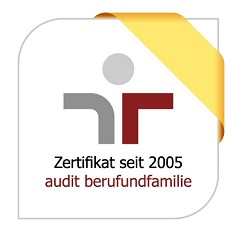2 Postdoc Positions in Pancreatic Cancer Immunology and Computational Biology
Kennziffer: 2025-0105
- München
- Full-time
- Institute of Translational Cancer Research and Experimental Cancer Therapy, TUM

„Forschen für ein Leben ohne Krebs“ – das ist unsere Aufgabe am Deutschen Krebsforschungszentrum. Wir erforschen, wie Krebs entsteht, erfassen Krebsrisikofaktoren und suchen nach neuen Strategien, die verhindern, dass Menschen an Krebs erkranken. Wir entwickeln neue Methoden, mit denen Tumore präziser diagnostiziert und Krebspatient:innen erfolgreicher behandelt werden können. Jeder Beitrag zählt – ob in der Forschung, in der Administration oder der Infrastruktur. Das macht unsere tägliche Arbeit so bedeutungsvoll und spannend.
Together with university partners at seven renowned partner sites, we have established the German Cancer Consortium (DKTK).
The Department of Translational Cancer Research and the Institute of Experimental Cancer Therapy at the DKTK partner site Munich is offering for as soon as possible
We are deploying advanced in vitro and in vivo model systems, genetic perturbations and single cell technologies with spatial readouts to study the distinct routes of tumor evolution and modes of immunosuppression we identified in our previous work in subtypes of pancreatic cancer (e.g., Nat Commun. 2023 14:2642 and 14:1201; Nature Cancer 2022 3:318-336, Cancer Discovery 2021 11:3158-3177, Nature 2018 554:62-68; Nat. Rev. Cancer 2017 17:239-253; Nat. Commun. 2016, 7:10770; Nat Med. 2014, 20:1340-7). During the past decade, our lab has generated a comprehensive resource of pancreatic primary tumors and primary cell cultures. Multiple NGS methods and biological readouts have been conducted to decipher the molecular makeup and phenotypes of these tumors. The advertised projects focus on (1) unraveling targetable nodes of the cancer-immune niche and its impact on treatment response and resistance, (2) understanding the contribution of cancer associated fibroblasts towards immunosuppression, and (3) developing computational single cell and spatial transcriptomics pipelines to investigate tumor subtype specific genetic interactions in close collaboration with the Theis lab at Helmholtz Center Munich.
We are an enthusiastic and international team and offer intensive training and mentoring.
The Department of Translational Cancer Research and the Institute of Experimental Cancer Therapy at the DKTK partner site Munich is seeking two postdocs to join the group as soon as possible.
Ihre Aufgaben:
The successful candidates will have the opportunity to:
- Gain important insights into clinically relevant aspects of cancer development and therapy
- Perform state-of-the-art in vivo experiments and large-scale drug and genetic screens
- Learn and apply a wide spectrum of genetic, molecular and cell biology, biochemical as well as immunological and bioinformatics techniques to study translational aspects of cancer (e.g. Cre/loxP and Flp/FRT based dual- and triple recombinase systems, organoid culture, orthotopic transplantations of cells/organoids, CRISPR/Cas9, molecular in vivo imaging, quantitative proteomics/phosphoproteomics, multiple transcriptomics and genomics approaches, single cell sequencing, histocytometry)
- Set up bioinformatics platforms and develop computational pipelines for the analysis of bulk and single cell RNA-sequencing, DNA-sequencing datasets and proteomics
- Integrate these datasets with molecular (WES, WGBS, lcWGS, ChIPseq, ATACseq), phenotypic (e.g. histology), drug screening and clinical information
- Interact within a diverse and multidisciplinary environment of biologists, clinicians, computational scientists and mathematicians within the TranslaTUM.
Ihr Profil:
We are looking for exceptional self-motivated bright individuals with a Diploma or Master’s degree in bioinformatics, biochemistry, biology, molecular/translational medicine or related subjects. Previous exposure to and experience with basic biochemical and molecular biology techniques, proteomics or bioinformatics as well as interests in molecular aspects of cancer research are essential. Due to the interdisciplinary framework and close collaboration between wet-lab and computational scientists, good communicative skills in English are essential. German language skills are not required.
Interested candidates should send one pdf file with a CV, cover letter, certificates, and letters of recommendation.
Unser Angebot:
- Hervorragende Rahmenbedingungen: modernste state-of-the-art Infrastruktur und Möglichkeit zum internationalen Austausch auf Spitzenniveau
- Vergütung nach TV-L inkl. betrieblicher Altersvorsorge und vermögenswirksamer Leistungen
- 30 Tage Urlaub
- Flexible Arbeitszeiten
- Möglichkeit zur Teilzeitarbeit
- Familienfreundliches Arbeitsumfeld
- Nachhaltig zur Arbeit: Vergünstigtes Deutschland-Jobticket
- Unser betriebliches Gesundheitsmanagement bietet ein ganzheitliches Angebot für Ihr Wohlbefinden
- Entfalten Sie Ihr volles Potenzial: Zugang zum DKFZ International Postdoc Program und dem DKFZ Career Service mit gezielten Angeboten für Ihre persönliche Entwicklung fördern Ihre Talente
Sie sind interessiert?
Prof. Dr. Dieter Saur
Telefon: +49 89 4140 9130
Bewerbungen per E-Mail können leider nicht angenommen werden.
Bitte beachten Sie auch, dass wir per Post eingereichte Bewerbungen nicht zurückschicken können.

